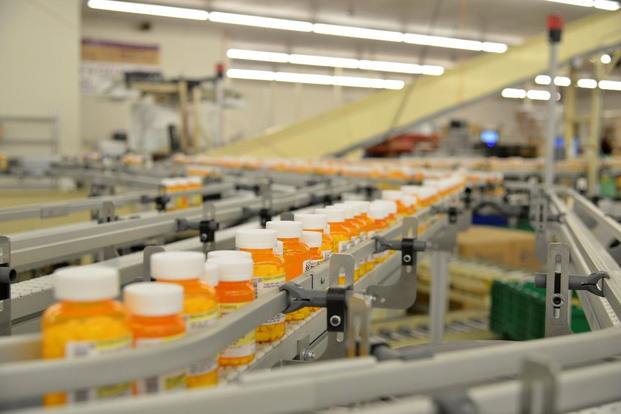The Department of Veterans Affairs announced a partnership with the Defense Department this week to upgrade its supply chain system, which is perennially on a government watchdog agency's "high risk" list for waste, fraud and abuse.
The partnership with the Defense Logistics Agency (DLA) will give the VA access to the DLA's worldwide procurement system in an effort to streamline the VA's purchase of everything from medical and surgical supplies to cleaning equipment and construction materials, the VA said in a news release Monday.
"This is a huge step forward in our efforts to transform VA into a modern, high-performing organization by simplifying operations and leveraging DoD's supply chain system to support our veterans," VA Secretary Robert Wilkie said in a statement.
Army Lt. Gen. Darrell Williams, director of the DLA, said the agreement would help the VA reduce costs for supplies.
Related content:
- VA Flagged as 'High Risk' Agency for Waste, Mismanagement
- Former Walter Reed Chief to Take Over at Troubled VA Medical Center
- VA Medical Center in DC Put Patients at Risk: IG
"On behalf of DoD, we are proud to be a value-add to VA on behalf of America's veterans," he said in a statement.
The VA release said the DLA will help "create a centralized ordering system for VA" aimed at "reducing risk, waste, fraud and abuse in purchasing medical equipment and supplies," problems that have plagued the system for years and repeatedly been cited by the VA's Office of Inspector General and the Government Accountability Office.
In March, the GAO again put the VA on its biennial "high risk" list of agencies and departments whose practices are open to abuse; it also added a new area of concern at the VA -- acquisition management.
"VA's procurement policies have historically been outdated, disjointed and difficult for contracting officers to use," the GAO report states.
In 2017, the department launched a new program aimed at overhauling its supply chain system to achieve $150 million in cost reductions, the GAO noted.
However, the GAO reported in November 2017 that the new program "was rushed, lacked key stakeholder involvement and buy-in, and relied on establishing non-competitive blanket purchase agreements for the overwhelming majority of products, resulting in low utilization by medical centers."
The VA's Office of Inspector General was particularly scathing in a series of 2017 reports on supply chain scandals at the Washington, D.C., VA Medical Center.
IG Michael Missal found the problems at the Washington VA so troubling that he took the unusual step of issuing preliminary findings prior to the final report to alert the Veterans Health Administration to a situation "sufficient to potentially compromise patient safety."
The final report concluded that no patients were harmed but found that $150 million in supplies had never been inventoried, storage areas were filthy, and there was no system for ensuring that defective medical instruments and supplies were not used on patients.
Poor oversight of the medical supply system led to shortages in operating rooms at the hospital, according to the report. At one point, the operating room ran out of vascular patches to seal blood vessels and ultrasound probes used to map blood flow.
In addition, the hospital had to borrow bone material for knee replacement surgeries and also ran out of tubes needed for kidney dialysis, forcing staff to go to a private-sector hospital to procure them, the report added.
-- Richard Sisk can be reached at Richard.Sisk@Military.com.













